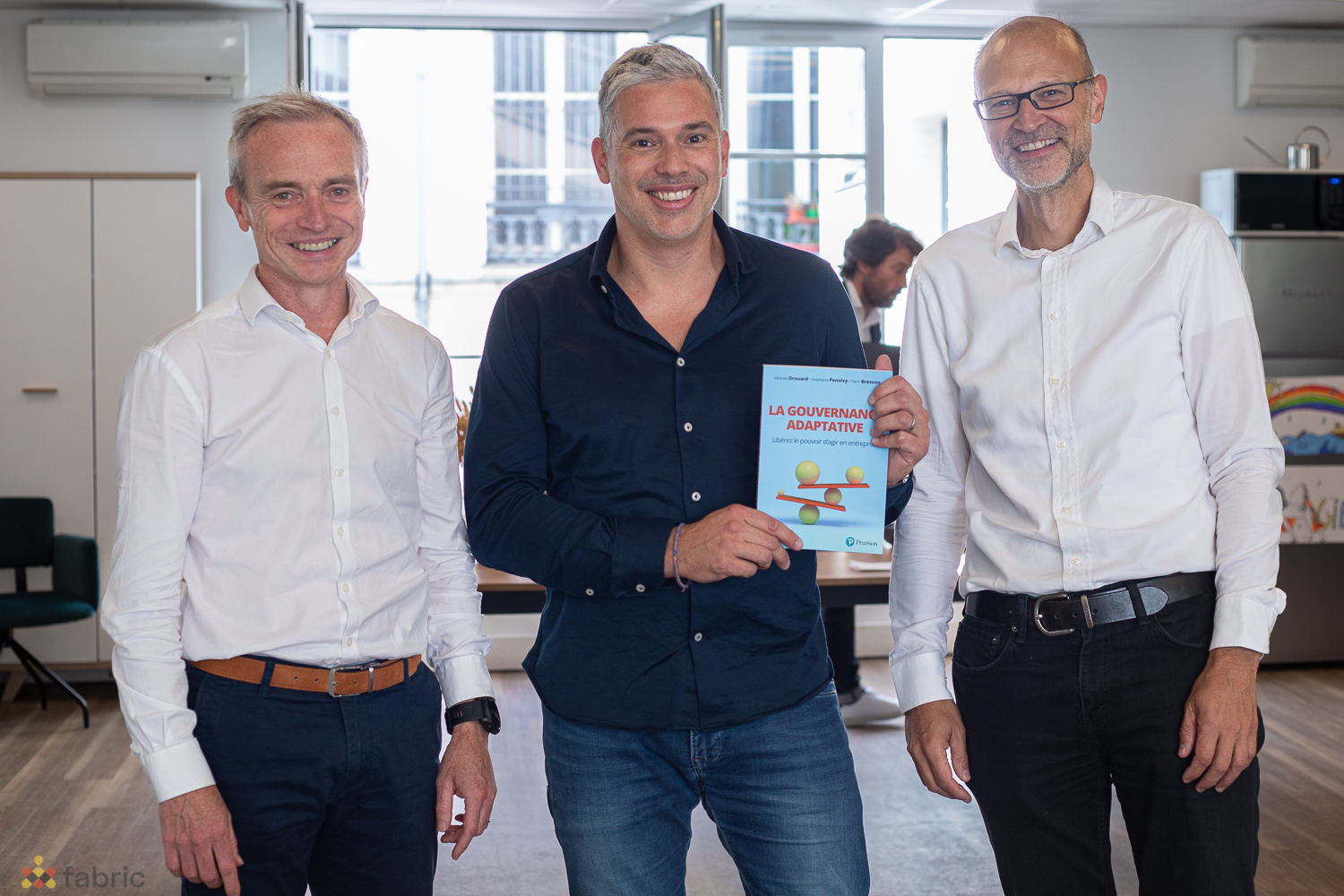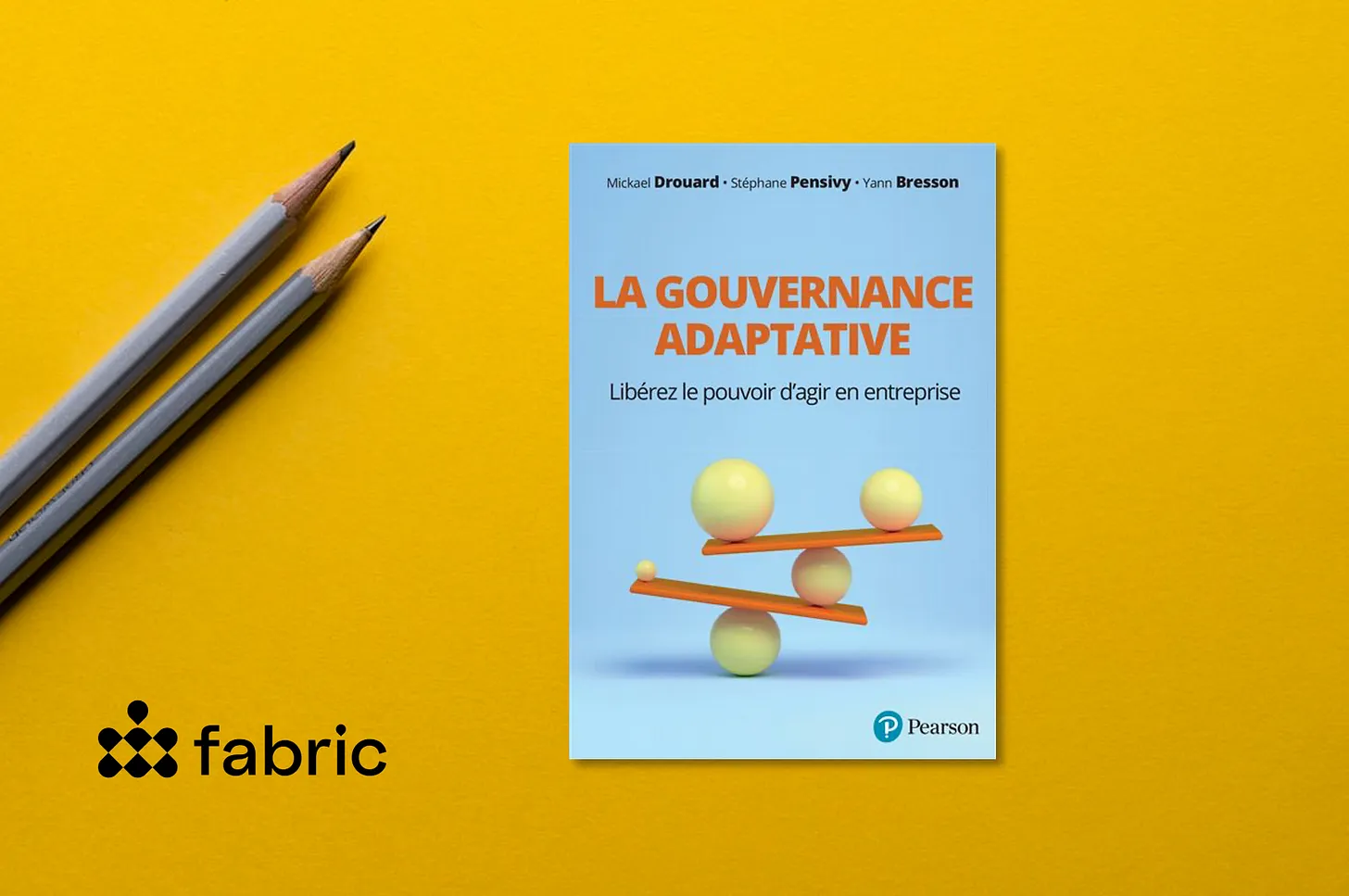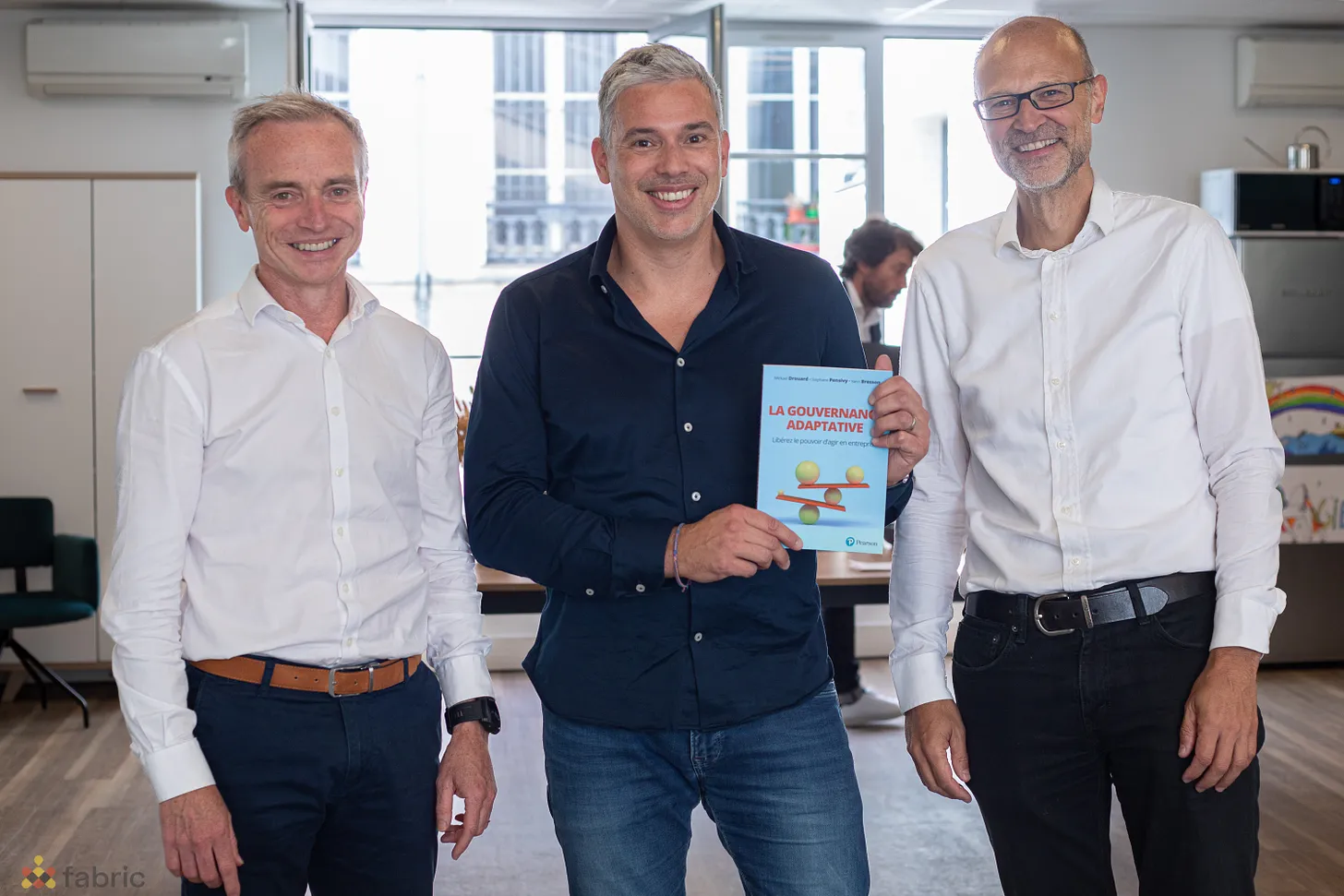We wanted to share to our international friends a short extract of the book Mickael co-wrote with Stéphane Pensivy and Yann Bresson, titled in French “La Gouvernance Adaptative, Libérez le pouvoir d’agir en entreprise” (Adaptive Governance: Unleash the People’s Power to Act in Your Company), Ed. Pearson, 2021.
In this extract, he will clarify what changes in the Managers’ scope of responsibilities when a classic pyramid/matrix structure takes its first steps towards self-organization.

Delegating authority to the self-organized team on operational matters
If a part of the company decides to move towards self-organization, it is possible that some managers might be apprehensive about delegating authority and thus losing some of the legitimacy conferred on them by their position. It is therefore essential to support them in the road the organizational transformation.
This support can focus on the resizing of the managerial function. (…) In self-organization, managers still hold several key accountabilities. Adaptive Governance invites managers to delegate their operational decision-making authority to a self-organized team. But the manager’s other responsibilities remain in their role.
Indeed, the managerial function, instead of disappearing, continues to be essential in self-organization because what is now asked from the managers is crucial to the new governance model.
First, the quantity and quality of their decisions will change. They will be less focused on day-to-day matters and more focused on high-stakes issues that have consequences beyond the team’s day to day activities.
Second, managers continue in the two areas that have always been a part of their accountabilities:
- the Agreement Framework
- the Support of People
Keeping authority on the Agreements Framework
Managers remain in charge of activities related to the company’s legal and contractual framework. Indeed, the company must comply with numerous legal obligations, agreements, contracts, etc. The managers, depending on the size of their organization and their position, have the legal responsibility in these areas. Managers are still responsible for implementing the company’s business model, for deploying the strategy, for meeting the objectives, etc. Managers remain also responsible for implementing the company’s remuneration policy, making decisions on salary increases, arbitrating on the subject of variable bonuses, etc.

Focusing on Supporting People
Above all, managers now devote much more time to the people in their team. They now have more time for explaining the company’s strategy, for giving meaning to their actions, for verifying that it makes sense for them and that they can pursue their own individual purpose in connection with that of the company and for checking in with them about their well-being and their workload.
As we have already said, managers are also responsible for supporting the development of the people and helping them develop their talents. To do this, the manager has no choice but to spend time with everyone. These privileged moments of exchange are essential to get to know the team members individually, their skills, their appetites, their desires, and their motivations.
By getting to know their colleagues better, managers will also be able to understand the human chemistry within their team and encourage collective intelligence. By relying on the diversity of experience, expertise, and character, they will be able to enrich the collaboration within the team.
As for the team members, they will also be more at ease because, through their exchanges with the manager, they will better understand what they can contribute to and, indirectly, what their colleagues contribute. These exchanges will help them to get rid of questions such as “What am I doing here?” or “What is this guy doing here?” !
Self-organization within large conventional companies does not therefore discard the role of the manager. It does require rethinking it. In a conventional company it is, in fact, the “hierarchical managers” who can decide to delegate their authority to a self-organized team for the decisions relating to operations and the control of their application. But they will continue to manage the legal framework and invest more energy in growing people.
To learn more about the book and Adaptative Gouvernance, you can check out those articles in French magazine Les Echos about the Seven golden rules of Adaptative Governance and its key elements; or watch Mickael’s interview by B Smart:
